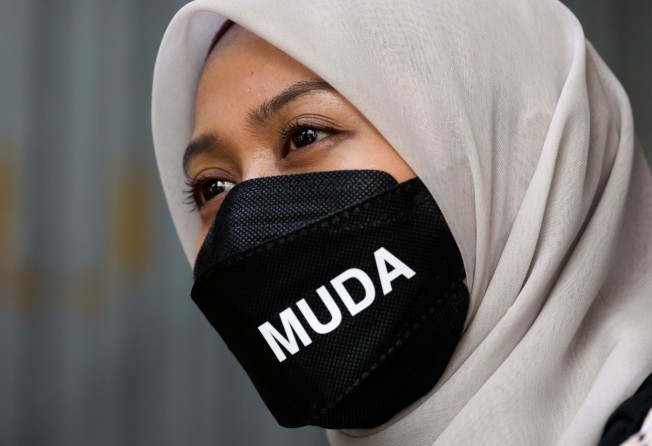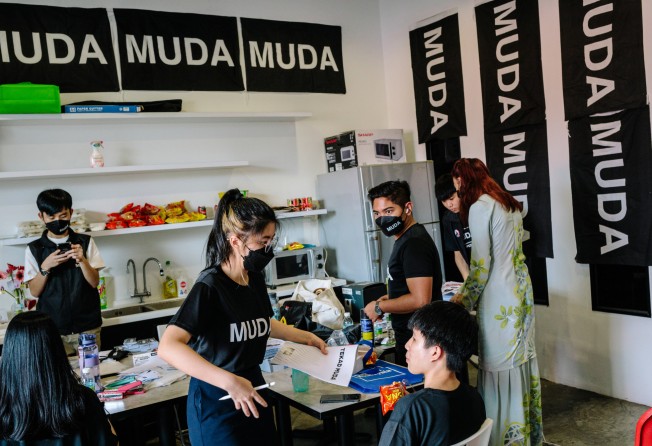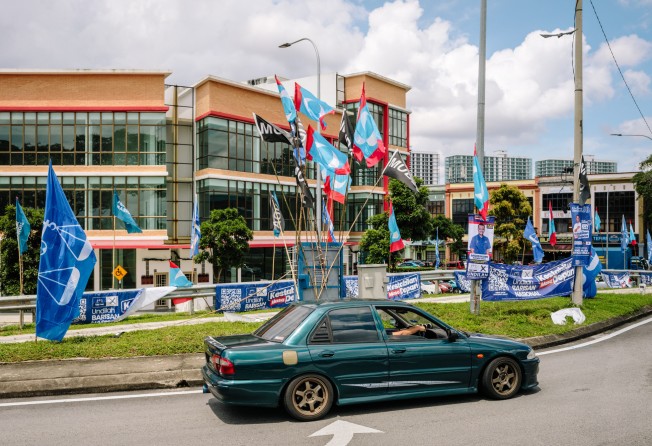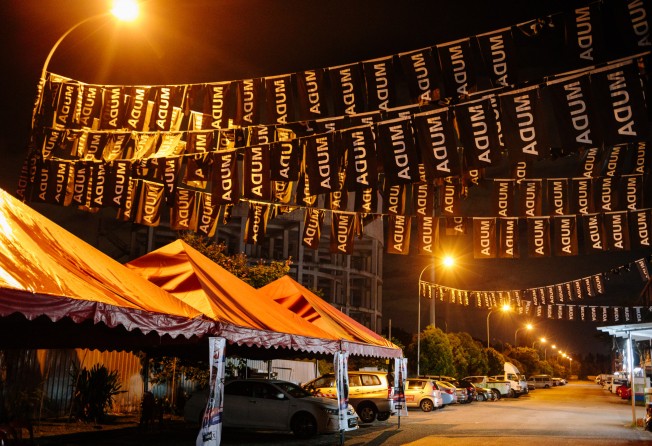
Malaysia’s young voters focused on economy and jobs not 1MDB scandal
- Roughly 5.8 million new voters will be eligible in the next national election; almost a fifth of Malaysia’s population and 40 per cent up from 2018 vote
- Lowering the voting age to 18 from 21 was one of the key accomplishments of the reformist government that collapsed in early 2020

Younger Malaysian voters angered by the 1MDB corruption scandal played a key role in ending the six-decade rule of the United Malays National Organisation back in 2018. Ahead of another national election, there’s a lot more of them – and they appear more worried about the economy.
Lowering the voting age to 18 from 21 was one of the key accomplishments of the reformist government that collapsed in early 2020 due to internal bickering. The legislation finally took effect late last year when Umno had regained the premiership and is again strengthening its hold on power in one of Southeast Asia’s wealthier countries.

Roughly 5.8 million new voters will be eligible to cast their ballots in the next national election, which is due in 2023 but expected this year. That represents almost a fifth of Malaysia’s population and a 40 per cent jump from the 2018 vote.
The first test of their impact will come Saturday in the state of Johor on the southern tip of peninsular Malaysia. Interviews with 20 new voters under 21 this month revealed an obstacle for the opposition: Many cared more about the economy than the 1MDB scandal that tainted Umno’s reputation and helped take down former Prime Minister Najib Razak.
“All I think about, day and night, is this business,” said Fatimah, an 18-year-old who only gave her first name, as she managed a clothing stall at a night market in Johor Bahru, the state capital that borders Singapore. Without revealing her preferred party, she said she was focused on making ends meet and had no strong opinions on 1MDB or Najib, who is currently on trial for several cases.
A resounding Umno win in Johor could prompt the party to soon call a nationwide vote, as it seeks to solidify its majority following a series of short-lived coalitions that brought the country three prime ministers since 2018 – as many as Malaysia had in the previous 37 years. It may also bring back Najib, who remains politically popular despite being accused of pocketing billions of dollars in state money. He has denied wrongdoing.

“For younger people, although they do accept the fact that Najib was corrupt, the irony is that in Malaysia corruption is not seen as corruption like in many countries,” said James Chin, a professor at the University of Tasmania who has researched Malaysian politics for decades. There’s a perception in Malaysia that “if you are top of the political tree you are bound to be involved in corruption. Otherwise you can’t make money,” he added.
Johor is Umnos birthplace and traditional stronghold. The Umno-led Barisan National coalition plans to capture a two-thirds majority, or at least 38 of the 56 seats up for grabs, Prime Minister Ismail Sabri Yaakob said this week. The party, running under the slogan “Future Stability,” said it will introduce a law barring party-hopping if it wins to prevent frequent changes of government.
The coalition has unveiled a slew of measures to appeal to the youth vote, including cash handouts for students and affordable housing programmes. It’s also picking fresh faces: About 70 per cent of candidates are running for the first time, with most all below the age of 55 and possessing “high academic credentials.”
Umno’s main opponent Pakatan Harapan, which won the last Johor election in 2018, is pledging tuition help for students and capital for young entrepreneurs while teaming up with a new youth-oriented party to stay competitive. The Malaysian United Democratic Alliance – whose acronym MUDA literally translates to “young” – is fielding seven first-time candidates.

Amira Aisya Abd Aziz, MUDA’s co-founder, is the youngest and only female contestant in a six-way fight for a constituency outside the state capital. The 27-year-old is pushing for transparent political funding and wants Malaysia’s leaders to more accurately reflect the country’s median age of 29.
“I see the Johor election as a start for us to create that change,” she said. “Because of the young voters, parties are fielding in younger candidates, and recognising the importance of an anti-hopping law in Malaysia. If that’s something that everyone is fighting for, then I want to celebrate.”
Malaysian youths were among the most pessimistic about the government’s plans for post-pandemic recovery, according to a Redhill Asean survey on youth published in December. Only their counterparts in Thailand had a gloomier outlook in Southeast Asia.
Some older voters aren’t convinced young people will go to the polls. Haji Razak, 61, has bedecked his home with the dark blue party banners of the coalition headed by Muhyiddin Yassin, a Johor local who served as prime minister for about 17 months before being ousted last August.

“They’re clueless, just on their gadgets all the time,” Haji said of the youth in his village. “Some have even outright asked me who they should vote for.”
Nur Qyira Yusri, co-founder of Undi18, a youth empowerment organisation that successfully lobbied to lower the voting age, said: “Young people are fed up by how easy it is to betray votes.”
On the ground, even opposition candidates are saying it’s better to talk about bread-and-butter issues than anything else to draw younger voters’ interest.
“We don’t even need to raise the issue of 1MDB,” Napsiah Khamis, a candidate for the opposition People’s Justice Party, said during a campaign rally last Saturday. “We just ask them the price of chicken, and they get angry.”